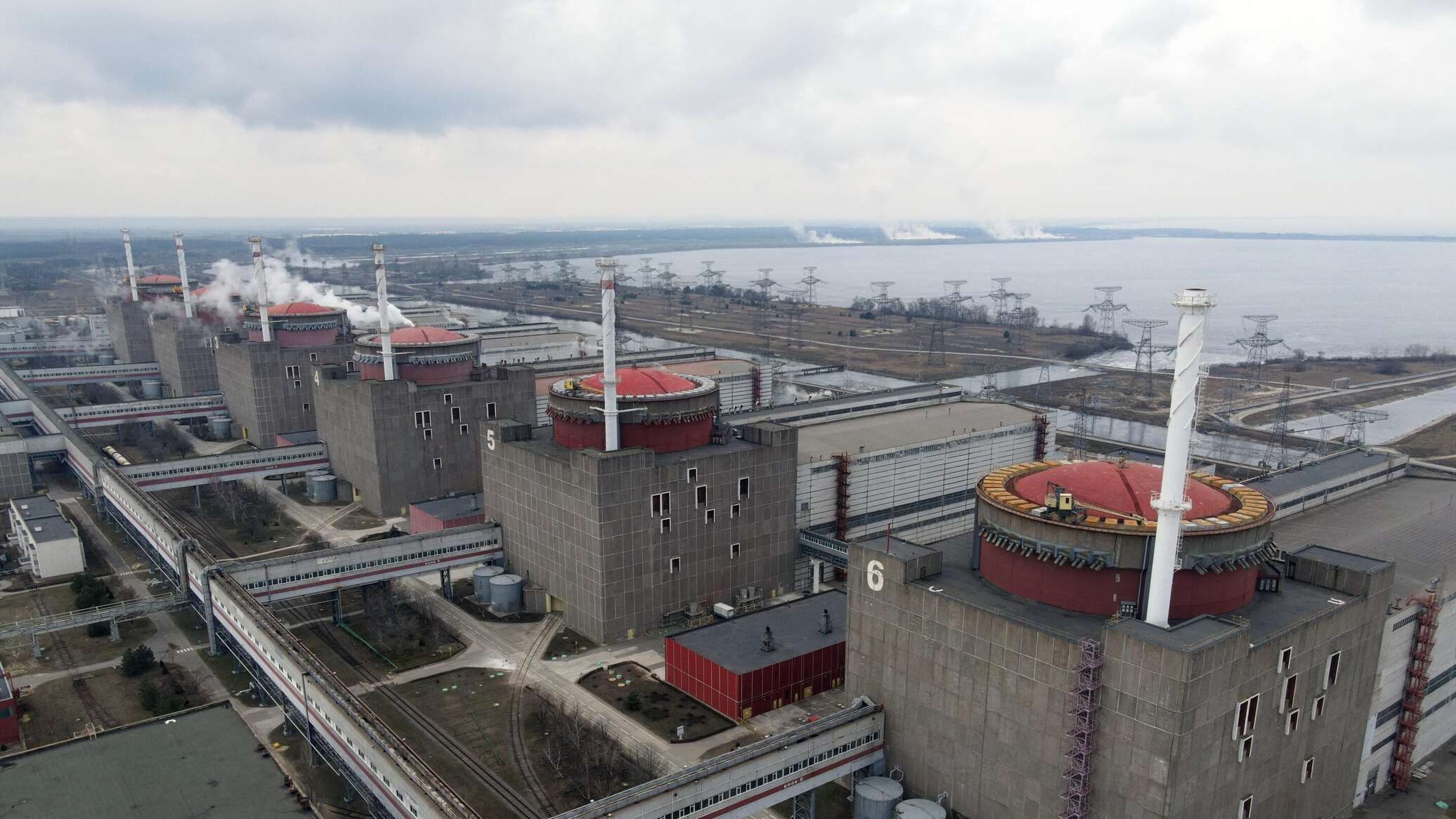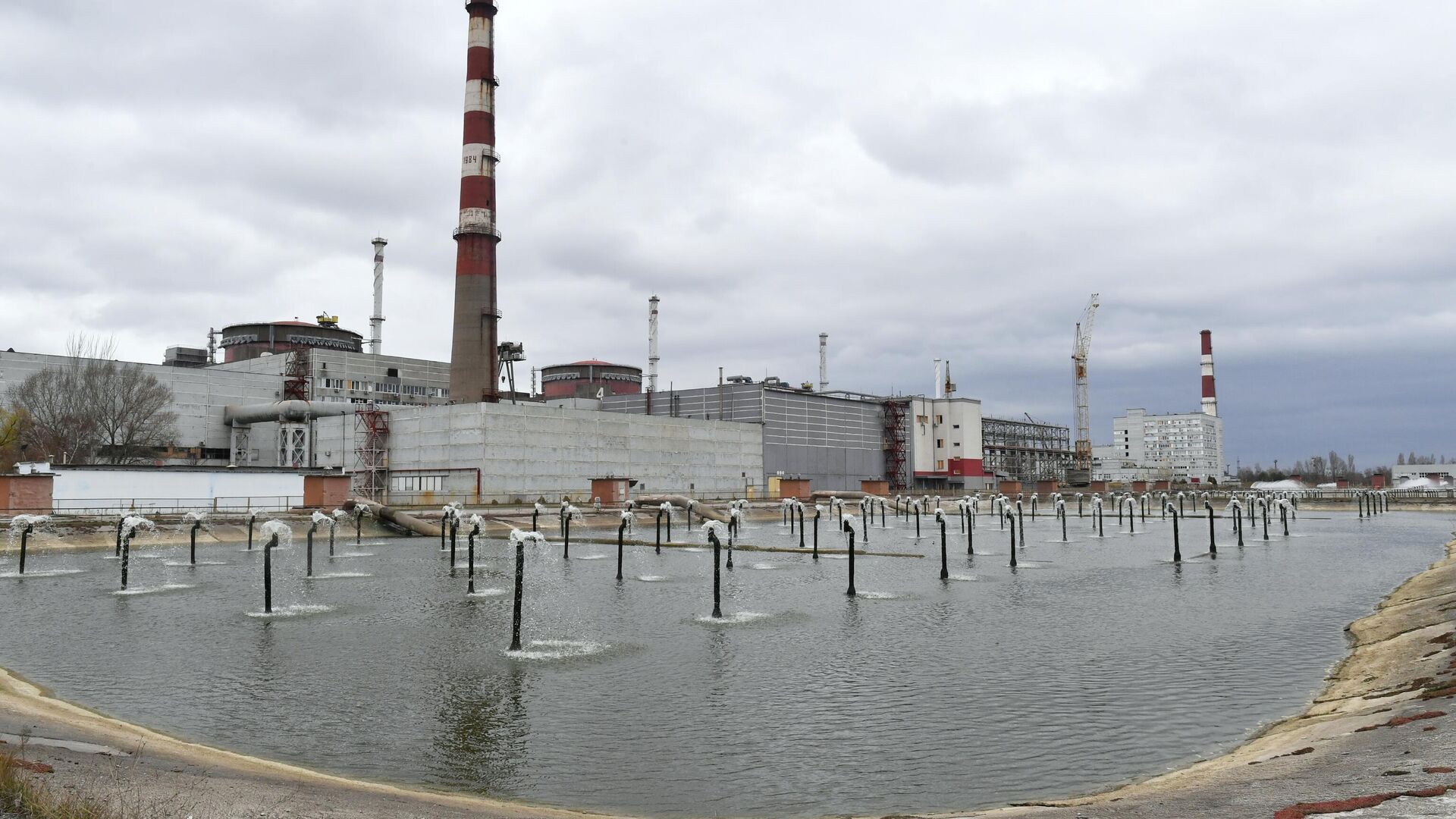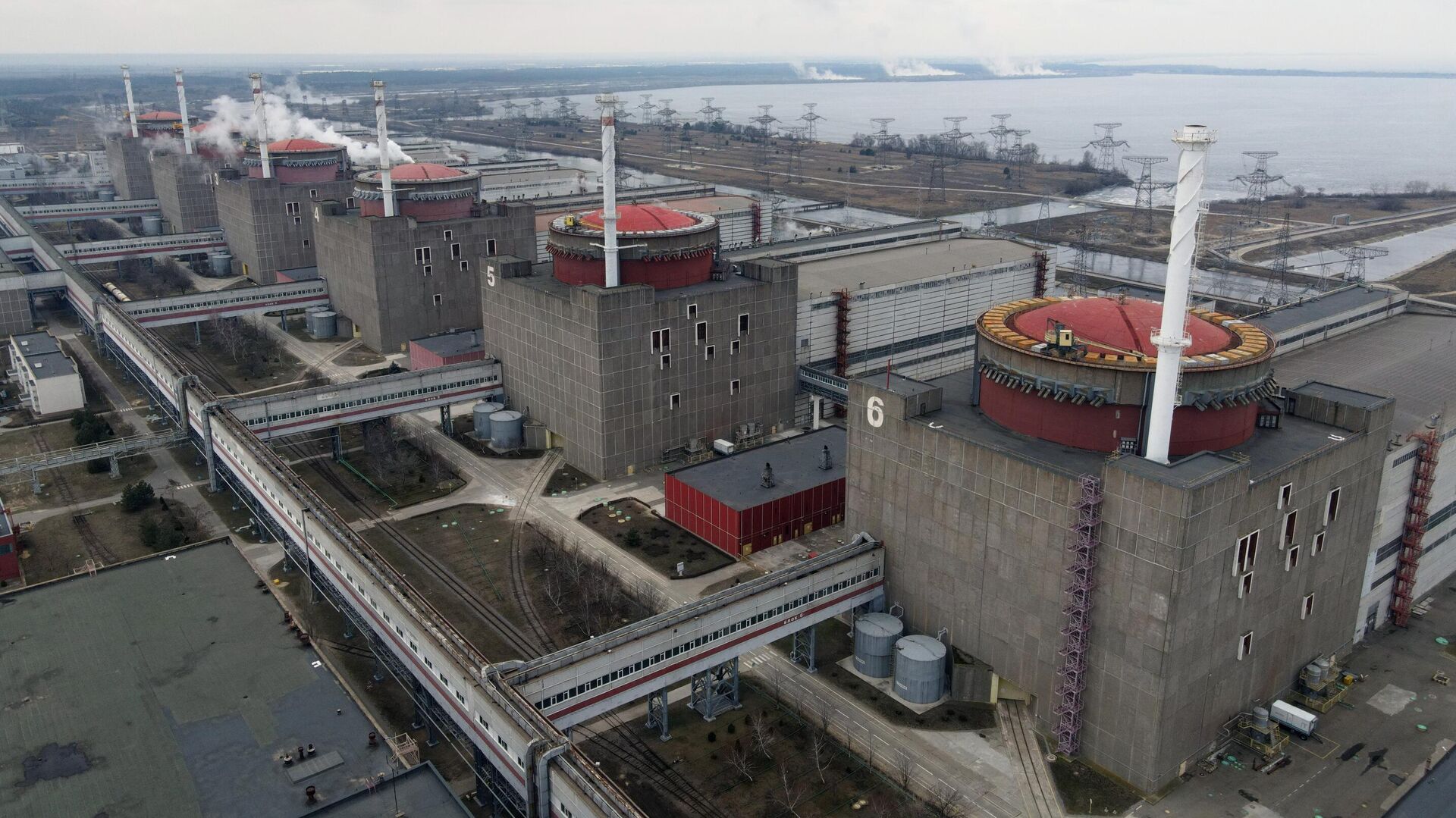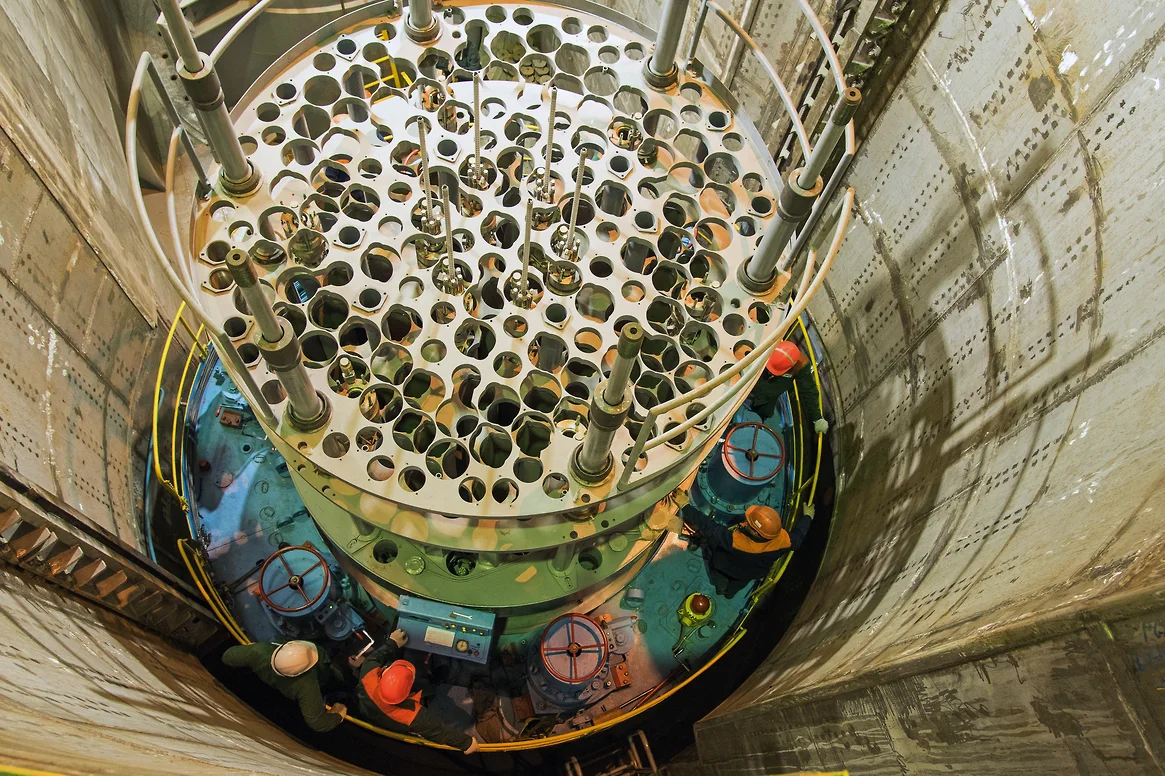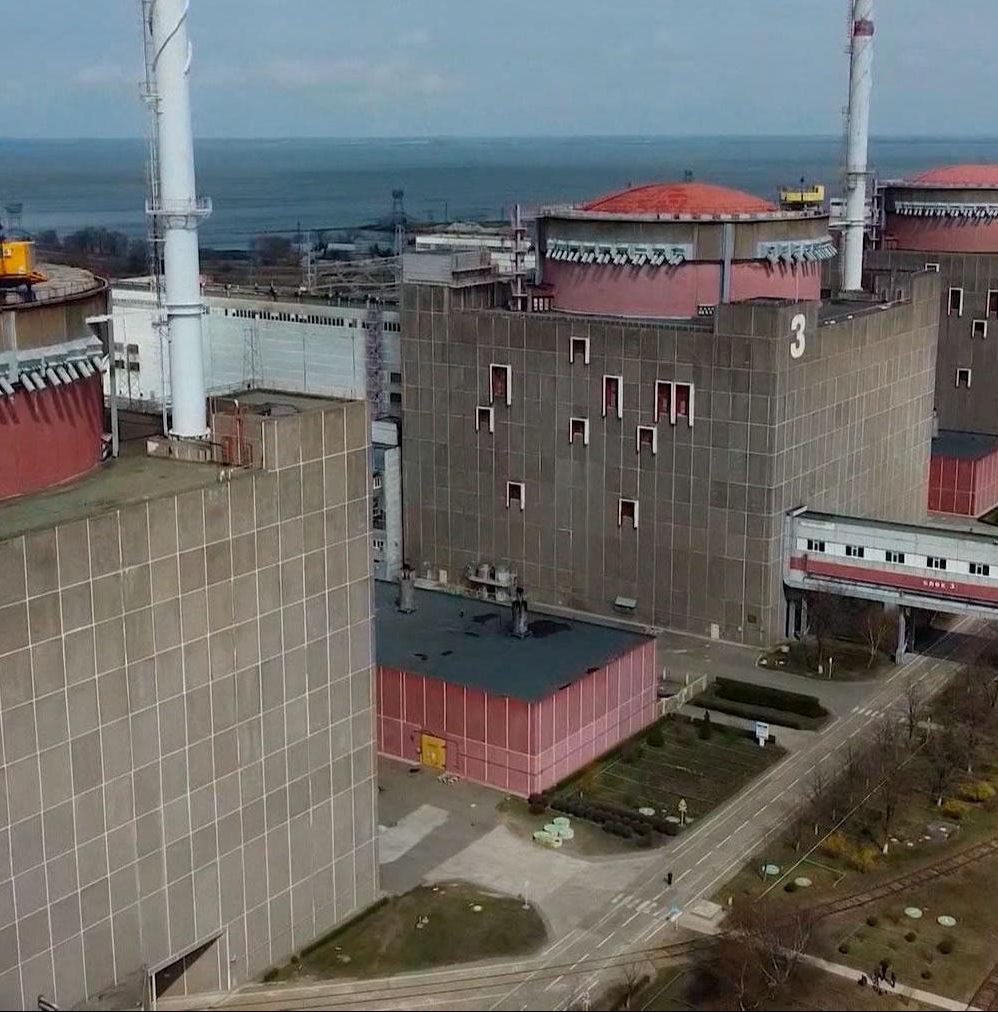Exclusive Interview
Following months of alarming reports about the Zaporozhskaya NPP, a piece of news, that could be considered encouraging, has appeared for the first time: a power line has been restored and certain agreements have been reached with the Ukrainian side. Yet, does this truly represent a step towards stabilization? In an interview with PIR Center Dr. Mikhail Lysenko, member of PIR Center Advisory Board, weighs the true value of the “guarantees”, assesses the future role of the IAEA and discusses the critical need for new international legal frameworks to safeguard nuclear facilities.
The interview was conducted by Mr. Sergey Shashinov, PIR Center intern.
Mr. Sergey Shashinov: The Russian Foreign Ministry managed to obtain security guarantees from Kyiv for the restoration of power lines at the Zaporozhskaya Nuclear Power Plant. The restoration work on the “Dniprovska” power line, controlled by Russia, has been fully completed recently. Would you mind assessing the importance of the fact that Russia managed to reach a positive agreement with Ukraine regarding the ZNPP for the first time in a long period? Can it be treated as a step towards resolving the conflict surrounding the ZNPP?
Dr. Mikhail Lysenko: On the one hand, it’s great to hear that the guarantees have been obtained and the power line has been restored. And yet, some concerns remain. Does this event represent a step forward in settling the situation? Unfortunately, many questions remain unclear. Firstly, the RIA Novosti correspondent who received this information from the Foreign Ministry did not clarify some obvious questions: what guarantees are we talking about? Do they refer to this specific case or not? Are they written or oral? At what level were they made? What is the role and responsibility of the IAEA in their observance? And most importantly, what is the essence of these guarantees? So far, there is no clear information. In any case, since the power line has been repaired, the plant is being powered and this is great. However, we all know that the Ukrainian authorities are reckless and can’t negotiate in good faith. Can we be confident that these so-called “guarantees” will remain valid? So far there are more questions than answers. Therefore, it is unlikely that this can be considered the first step towards resolving the situation around the ZNPP.
Mr. Sergey Shashinov: Over the past year, we have heard a number of statements from high-ranking US officials about the intention to establish joint American-Ukrainian control over the ZNPP to ensure greater security. However, it is a well-known fact that the station itself is under IAEA safeguards. What will happen to the ZNPP after the conflict in Ukraine is over? Which scenario best suits Russia’s interests?
Dr. Mikhail Lysenko: I don’t understand what the Americans have to do with it? Russia is cooperating with the IAEA. We have undertaken unprecedented measures of cooperation, but not in terms of fulfilling nuclear non-proliferation guarantees, but in terms of ensuring the engineering, technical, and physical security of the station amid military threats from Kyiv. What do the Americans have to do with it?
The future of the station seems clear to me, and our officials have repeatedly stated this: the ZNPP has been part of the territory of the Russian Federation for several years already. Therefore, it will always be an integral part of the Russian Federation’s energy system. That’s it. It remains unclear whether we will continue to involve the IAEA in ensuring security and safety of the station. I believe that after the military phase of the conflict is over, the presence of the IAEA staff at the ZNPP will cease as unnecessary.
Let me reiterate that we see no role for the United States in ensuring security and safety of the station. The only potential engagement with them concerns the disposition of the U.S. fuel at the station. As the Russian side has previously stated, there are two options: either we use this fuel or return it to the United States.
Mr. Sergey Shashinov: During the recent Valdai Club meeting, the President of the Russian Federation warned the Ukrainian authorities against further attempts at nuclear blackmail, reminding them that there are also operating NPPs on the territory of Ukraine. Can these words deter Kyiv from attacking Russian NPPs and other energy facilities? How great is the probability of retaliatory strikes against Ukrainian NPPs in case provocative acts from Kyiv continue?
Dr. Mikhail Lysenko: The quote of the President of Russia sounds as follows: “There are also operating nuclear power plants in Ukraine, what’s stopping us from responding accordingly? Let them think about that.” And who exactly should think about it? It seems to me that President Putin did not accidentally use the plural here, hinting that not only the Kyiv authorities should think about it, but also those who encourage them to conduct these attacks. I would like to believe that no retaliatory actions will take place, but at the same time, I am deeply convinced that the provision of the so-called “guarantees” by the Kyiv regime was a response to the President’s statement.
Mr. Sergey Shashinov: Restoration work on repairing the ZNPP power line has already been completed on the Russian side. However, work is still underway on the second line, which is under Ukrainian control. The Ukrainian authorities are deliberately avoiding any comment on the timeframes. Can we state that Kyiv is deliberately delaying the work, hoping to derive some political dividends in the future when the opportunity arises?
Dr. Mikhail Lysenko: That is the price of these “guarantees.” The only meaningful guarantee would be an uninterrupted power supply necessary to maintain the power plant’s life-support systems. In this case, it is obvious the Ukrainian authorities are deliberately delaying the whole process. Whatever guarantees they give, they are worthless. There is no doubt that Kyiv will go on disrupting any agreement. The Kyiv regime can’t negotiate in good faith.
If we talk about the global prospects for resolving the ZNPP problem, then the only viable prospect is to push the enemy far beyond the front line and to bring our victory closer. Besides, any guarantees should be linked to the legal regulation of situations related to armed conflicts in areas where nuclear facilities are located.
Unfortunately, there is a rising incidence of armed attacks on nuclear infrastructure facilities. 1981 – Israel’s strike on the Iraqi reactor; 2007 – Israel’s strike on a facility under construction in Syria. Now we are witnessing continuous strikes on the Zapozhskaya station. There were attempts to seize the Kursk nuclear power plant as well as acts of sabotage against the Rostov, Smolensk, and Novovoronezh nuclear power stations. Almost all nuclear power stations in the European part of our country have been subjected to either sabotage or drone strikes. Finally, the apotheosis was the unprecedented massive US strike on Iran’s nuclear facilities. The consequences of such attacks may sooner or later result in a transboundary radiation catastrophe for humans and the environment.
Unfortunately, there is no universal document in international law addressing legal classification and responsibility for intentional armed attacks on nuclear facilities. Therefore, there is an urgent need in an international convention prohibiting such attacks. The main question is – who should we conclude this convention with now? The Americans or the Kyiv regime? No way. But I suggest we should start by initiating a draft resolution in the First Committee of the UN General Assembly, which would condemn intentional armed attacks on nuclear facilities and launch further negotiations on a convention prohibiting such acts. And most importantly – such acts must be qualified as international crimes. The convention could also include the development of international humanitarian law norms, universal rules of responsibility and due diligence in case of armed conflicts near nuclear facilities.
In 2004, PIR Center released (in Russian) a highly professional report, focusing on nuclear security during armed conflicts [ed. note – Arov Svyatoslav Alexandrovich. Civilian Nuclear Facilities During Armed Conflicts: Security Issues and Prevention of Terrorist Acts / Edited by K. A. Mineeva. Moscow: PIR-Press, 2024. 55 pp. (Security Index- Scientific Notes)].
I believe that amid recent events, it would be necessary to update and enrich this report with new conclusions and proposals.
Keywords: International security; the ZNPP; Atoms for peace
NPT
E16/SHAH – 25/10/30

